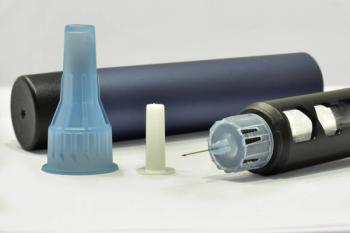
2023 Is the Year for Humira Biosimilars
As many as 10 Humira biosimilars may be on the US market before 2023 is over. AbbVie has taken several steps to protect its revenues, including the launches of Skyrizi and Rinvoq.
The launch this month of Amgen’s Amjevita biosimilar to Humira (adalimumab) marks not just the end of a 20-year competition-free period for AbbVie’s autoimmune disease drug but also what could be a sea change in the near-total control that pharmaceutical companies have wielded over the pricing of their products.
At least 6 (and possibly 9) more Humira biosimilars are expected to hit the market later this year as CMS begins a program to phase in the negotiation of Medicare drug prices that was spurred, in part, by outrage over how AbbVie priced Humira.
Achieving Medicare drug price negotiation was partly the agenda of a House Committee on Oversight and Reform investigation in 2021 that alleged abusive pricing strategies, and excessive patenting and litigation by AbbVie that extended Humira’s profitability and market exclusivity at least six years longer than even AbbVie’s executives had originally expected.
Meanwhile, a heavy price was paid by patients and payers as the annual cost of Humira climbed from $13,589 in 2003 to an estimated $84,000 in 2022. Last year, AbbVie stood to rake in more than $18 billion in revenue from Humira sales in just the U.S., up from $17.33 billion in 2021.
Even during the final year of Humira’s U.S. exclusivity and after an estimated $200 billion in worldwide revenues, AbbVie raised the U.S. price another 7%.
Patients have pleaded for pricing relief, to no avail. Katherine Pepper, of Bellingham, Washington, is one of them. She suffers from debilitating pain and reduced mobility from psoriatic arthritis.
“Humira’s price is $5,900 for a pack of two [injection] pens. Even as a Medicare beneficiary on a fixed income, I still have to pay nearly $1,200 out of pocket every single month. I can’t afford this. I don’t know any average person who can,” she testified before the congressional panel.
The question now is, how much and how quickly can biosimilar price competition make a difference in the cost of this biologic? Never in the short history of U.S. biosimilars have so many biosimilars for one reference product entered the market at one time. Neither AbbVie nor biosimilar makers have disclosed their product price expectations for 2023, but AbbVie executives recently noted that four years of biosimilar competition in the European Union have left Humira with just a 30% share of its former market.
What happens in the first half of this year will be interesting to industry observers and anyone concerned with the price of drugs. Amjevita will have the Humira biosimilar market to itself until July, when a half-dozen other Humira biosimilars are expected to join it. The staggered launch dates are not so much a reflection of readiness to make and market Humira biosimilars as of the royalty agreements and out-of-court settlements with AbbVie in exchange for AbbVie agreeing to stop throwing up legal roadblocks to the biosimilars.
Biosimilars arrived on the U.S. scene in 2015, and historical data compiled by Amgen suggest biosimilar launch prices (wholesale acquisition cost) have a wide range of between 10% and 57% below reference product prices. After they launch, on a yearly basis, biosimilar prices have declined 9% to 24% as competition intensified.
In the early years, biosimilars were not that well accepted, and their market share averaged just 39% after three years on the market. Biosimilars are now gaining traction faster — an average of 75% market share after three years, according to Amgen — so it is possible Humira’s sales could bottom out quickly.
Seeking Interchangeable Status
As of early December 2022, the FDA had approved seven Humira biosimilars. Three other companies have Humira biosimilar applications pending before the FDA and hope to launch by mid-year 2023.
That means a crowded field of up to 10 Humira biosimilars before 2023 is over. The companies have sought to differentiate their products by adding high-concentration, citrate-free formulations, which offer more convenience and less painful injection reactions for patients.
With the early launch of Amjevita, Amgen is in the enviable
position of having a head start on the other makers of Humira biosimilars. The company is also the manufacturer of Enbrel (etanercept), a rival autoimmune disease biologic that likely will not face competition in the U.S. before 2029. Amgen stands to benefit both from the Humira biosimilar gold rush and the legacy pricing structure for Enbrel that Humira helped establish.
Several biosimilar makers hope to enhance their products’ marketability by adding “interchangeable” designations that allow pharmacists, subject to certain state limitations, to substitute lower-cost biosimilars for the higher-priced reference brands without express authorization from the prescribing physicians. Interchangeability means outcomes are expected to be the same regardless of switching between the interchangeable biosimilar and the reference drug.
In 2021, Boehringer Ingelheim became the first company to obtain interchangeable status for a Humira biosimilar, which it is marketing under the brand name Cyltezo. Now other companies hope to follow suit and are busy conducting the switching studies needed to obtain the interchangeable designation from the FDA. Switching studies involve, as the name suggests, switching between the biosimilar and the reference drug and looking for changes in efficacy or side effects. The companies conducting the switching studies include Samsung Bioepis (Hadlima), Pfizer (Abrilada), Alvotech (AVT02) and Celltrion (Yuflyma).
These companies recognize that interchangeable status may be important to physicians working with hard-to-stabilize immunological conditions who are nervous about switching their patients from Humira to biosimilars. When it began approving biosimilars, the FDA stated categorically that these had no clinically meaningful differences in safety and efficacy from reference products. The FDA may not have intended biosimilars without interchangeable designations to seem clinically inferior, but increasingly biosimilar manufacturers are playing it safe. Even Amgen, with its jump on the competition, has initiated a switching study for Amjevita.
New to Retail Pharmacists
Prescription data suggest that the reluctance to prescribe and use biosimilars is ebbing. Still, Humira biosimilars and interchangeable biosimilars are going to be a new concept for many. This is especially true for retail pharmacists, whose only experience with biosimilars so far may have been Semglee, an interchangeable biosimilar to Lantus (insulin glargine). Other biosimilars are “overwhelmingly processed through the medical benefit (inpatient/outpatient care),” Amgen noted in its 2022 Biosimilar Trends Report.
Humira biosimilars will be dispensed at retail pharmacies, so this will be a new experience for pharmacists. “Whether or not pharmacists are prepared for biosimilars is not yet clear, with surveys of the profession showing mixed results,” Amgen wrote.
Rheumatologists are another wild card. The American College of Rheumatology has taken the stance that only physicians should decide whether to issue a reference product or a biosimilar. The rheumatologists’ organization also wants approved biosimilars to be subject to more clinical studies. This hesitancy to accept biosimilars was reflected in a 2022 survey of rheumatologists by Cardinal Health. Four out of 10 rheumatologists said they would be comfortable prescribing biosimilars, but their top concern (38%) was that these drugs might not equal reference products in efficacy.
However, physicians, payers and employers are increasingly siding with biosimilars, and their education programs and policies will influence a key variable in the Humira biosimilar acceptance equation: patients. A 2021 survey of 500 patients with immune-mediated conditions found that they “were only moderately inclined to accept anti-tumor necrosis factor biosimilars,” such as Humira biosimilars. The results of the survey, which was sponsored by Boehringer Ingelheim, showed that 43% of patients would switch to a biosimilar, with the remainder unsure or opposed. Most respondents had never heard of biosimilars.
AbbVie Getting Ready
Having battled in court to stave off biosimilar competition as long as possible, AbbVie did not stop there. Throughout 2022 the company worked assiduously with payers to ensure Humira would continue to hold a favorable position on formularies once biosimilars arrived.
By the end of the third quarter, the company was feeling confident that in 2023 it would retain much of the Humira patient volume to which it had grown accustomed. “I would say there’s no surprises, and I feel good about how the negotiations are going with all the major managed care organizations and pharmacy benefit managers,” AbbVie Chairman and CEO Richard Gonzalez said in an earnings call with analysts.
AbbVie has also been nurturing two immunology drugs that it believes will more than replace the lost revenue from Humira biosimilar competition while competing directly with Humira biosimilars. The first of these is Skyrizi (risankizumab), an interleukin 23 inhibitor that is already approved for many of the same indications as Humira, including plaque psoriasis, psoriatic arthritis and Crohn’s disease. Skyrizi sales are expected to top
$5 billion in 2022.
The second product is Rinvoq (upadacitinib), a Janus kinase (JAK) inhibitor for the treatment of rheumatoid arthritis, psoriatic arthritis, ulcerative colitis and forms of spondylitis.
Recent warnings about cancer, heart problems, blood clots and death have dampened enthusiasm for JAK inhibitors, including Rinvoq, although third-quarter revenues for this drug were $695 million, up 53.5% from a year earlier.
“Skyrizi and Rinvoq have established outstanding launch trajectories across existing and new indications, giving us a high degree of confidence in the collective potential of these two assets to ultimately exceed the peak revenues achieved by Humira,” Gonzalez said.
AbbVie is bracing for a steep decline of about 45% in revenue from US sales of Humira in 2023. Biosimilar pricing and payers’ willingness to continue to cover Humira are two uncertainties, Gonzalez said.
Newsletter
Pharmacy practice is always changing. Stay ahead of the curve with the Drug Topics newsletter and get the latest drug information, industry trends, and patient care tips.






















